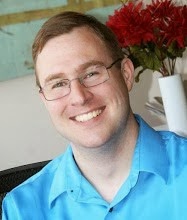The potential in students with Asperger’s
by Aaron
 So I was on a vacation out West last month and was golfing at the Gordon Country Club, looking out to the west on the 7th tee on a blustery day, watching the high, groomed grass dancing in the wind. I looked to the north and the land just wasn’t as tended to and was just unkempt land. What a difference a little (or a lot) of work made.
So I was on a vacation out West last month and was golfing at the Gordon Country Club, looking out to the west on the 7th tee on a blustery day, watching the high, groomed grass dancing in the wind. I looked to the north and the land just wasn’t as tended to and was just unkempt land. What a difference a little (or a lot) of work made.
That got me thinking.
I’ve talked so much about the potential a person on the autism spectrum can have. That potential isn’t just going to happen, though. It needs to work very much like the land out here. If it weren’t for the decades (probably more like the century’s!) worth of work on the land out here in Western Nebraska, there’s a good chance, well, a 100% chance, that the land would not be hospitable for much of anything. It’s taken irrigation, proper ranching, and a constant eye to make sure the land and livestock are right.
So why am I going on a talk about ranching and land? Potential. someone, at some point in time, saw potential out here. This community now has a sustainable agriculture economy. If the agriculture goes away, this town would likely go away, too.
How does this relate to anything? It all goes back to potential.
The school year is starting, and once more teachers are going to have students in their classrooms who have Asperger’s Syndrome. Some teachers have a difficult time handling these students, thinking that they are obstinate or defiant. Other teachers will let these students with Asperger’s just be themselves and not offer much guidance.
And then there are teachers who see the potential.
It’s fitting I started this blog post in the midst of an agriculture community, because for years I’ve been ending my presentations like this:
“we live in a society where everyone wants everything to be perfect right now. When it comes to autism we can’t look at it that way and rather we need to look at it like planting seeds; you’ve got to give it time to grow.”
That being the case, teachers have a great chance to plant the seeds. They can instill that potential that might be hidden underneath.
I ended up playing many more rounds of golf and driving by fields filled with cattle and grasslands perfect for food. Not being a farmer or rancher I didn’t always know what I was seeing – there were crops that I couldn’t name, and some fields that were seemingly empty. What was there? What was going on? From my vantage point it was empty, worthless land, but to the right farmer or rancher they may see the hidden potential in the land.
That’s the difference between knowing and not knowing. I can only hope that in this upcoming school year more and more teachers master the art of seeing potential. What may seem like an empty field may someday turn into the most beautiful of creations. It all starts with the planting of just one seed.
A version of this post first appeared on Aaron Likens’ personal blog, Life on the Other Side of the Wall.







September 4th, 2015 at 10:57 pm
Are there any mentors in the Des Moines area who have Aspergers? I’m trying to help my sister find resources for her son. I think my nephew would benefit from having someone to talk to about his Aspergers who really understood him. Thank you.
Lisa
August 22nd, 2015 at 9:12 am
I have a son now age 51 who has Asperger’s. He was born at a time that very little was known about autism. He is a most gifted person with an extremely high IQ, He was a learning experience for me being my first child with no resources about autism. He was fortunate to be in a grammar school with teachers who cared and gave him the freedom to learn at his pace. He completed high school in a christian academy with a very caring staff. With love and support he was able to become a very confident young man who was an assistant manager for many years. You never know what what a child or adult with autism can accomplish until you take the time to go beyond normal measures of parenting and give more love and patience than you could ever imagined possessing.
August 19th, 2015 at 1:43 pm
As an educator it can be frustrating at time but this, this list should be read by EVERY teacher because the fruits of our labor can never be measured on a grand scale but to every student I know I’ve taught and mentored the seeds for a future were planted. Great stuff!